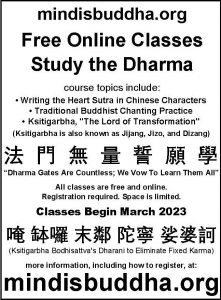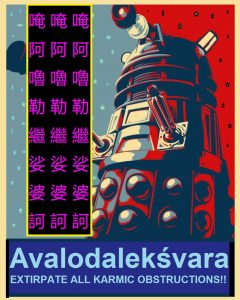Over a twelve month period, starting in March 2023, this course will cover the following six chants (we will spend two months on each chant):
Yebul / Homage to the Three Jewels
Kanzeon
Heart Sutra
Great Dharani
Kwan Seum Bosal / Jijang Bosal
Master Uisang’s Song of Dharma Nature


